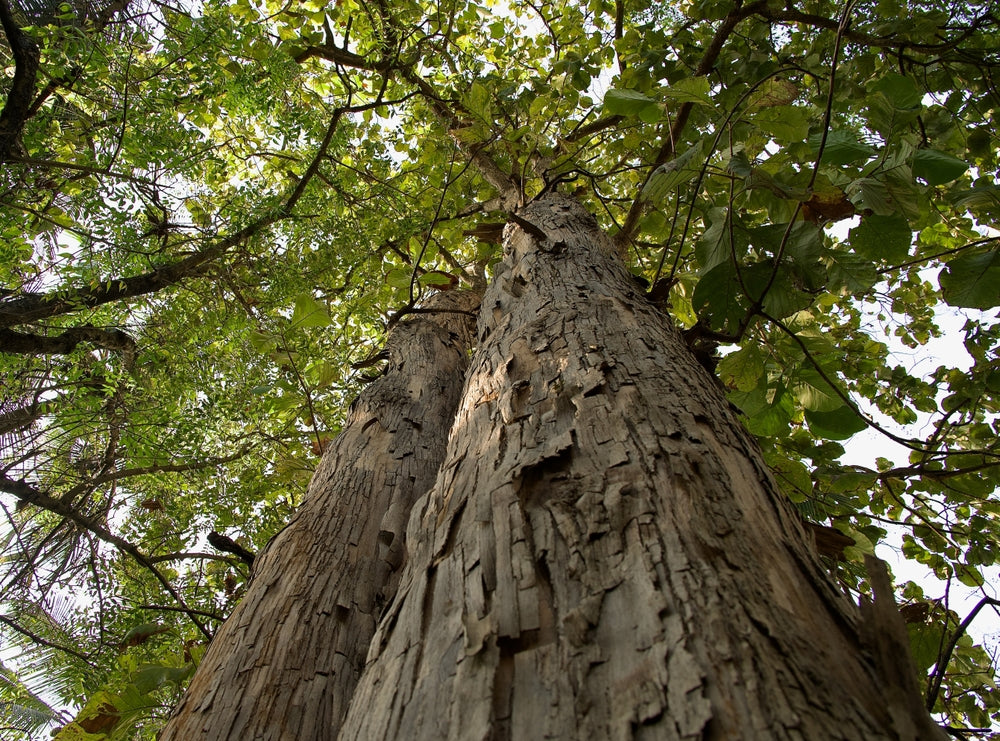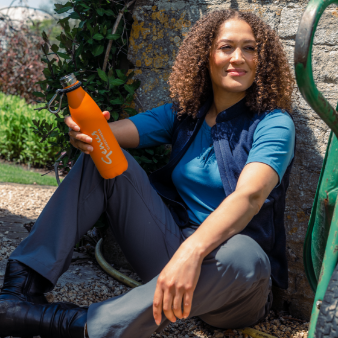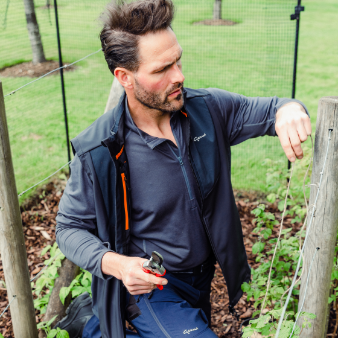The plants around us - teak

Tectona grandis, commonly known as teak, is a prized tropical hardwood tree belonging to the Lamiaceae, the family that surprisingly also contains, mint, thyme, and dead-nettles. Growing up to 40 metres in height it thrives in mixed hardwood forests in Asia, India, Africa, and The Caribbean. Commercially grown teak is produced in Indonesia whilst nearly half of the worlds naturally occurring teak grows in Myanmar.
The tree itself produces delicate, fragrant white flowers clustered at its branch tips with large 45cm oval leaves.
Teak's exceptional durability and water resistance make it a top choice for various applications. Boat builders, furniture makers, and artisans prize teak for everything from exterior construction to intricate carvings.
These exceptional qualities make it a top choice for outdoor furniture, but its popularity comes at a cost. Unsustainable harvesting practices have led to significant environmental damage and social issues in teak-producing regions.
Fortunately, conscientious consumers have an option - FSC-certified teak. The Forest Stewardship Council (FSC) is an independent organization that promotes responsible forest management worldwide. The FSC label on teak furniture signifies that the wood was sourced according to strict environmental and economic standards. It also safeguards biodiversity by maintaining wildlife habitats and ecosystems. The certification process addresses social concerns as well, guaranteeing fair labour practices with proper wages and safe working conditions for workers. Additionally, it respects the rights and needs of indigenous communities affected by teak production.
Perhaps most importantly, FSC certification authorises sustainable yield practices, ensuring that only a carefully controlled amount of timber is harvested. This approach helps maintain the delicate balance between meeting market demand and preserving forests for the future.







